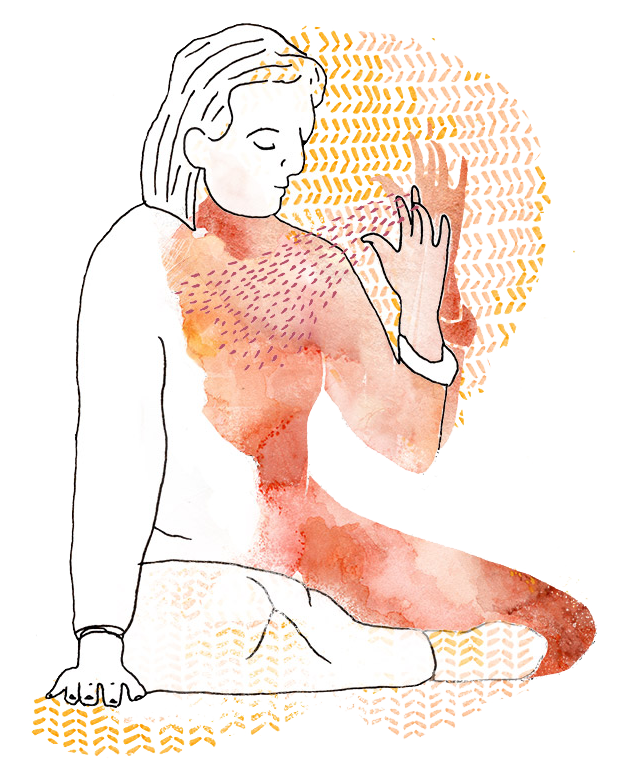How I Work
I am a somatic, experiential therapist.
Somatic therapies are at the cutting edge of what is considered effective in a field finally acknowledging the limitations of purely insight-based therapy. Our negative experiences in life imprint upon our living bodies in ways that require direct, relational attention to shift.
I draw from an extensive toolbox to help you grow your capacity to notice what is arising, for example your emotions, body sensations, impulses, images, or memories. As an experiential therapist I believe healing happens when we can track emerging awareness and experiment to discover. The innate wisdom of your body will be the primary guide to the process, which is gentle and organic so that the roots of what brings you into therapy can be earnestly addressed.
Although the field of somatic psychology tends to be viewed as relatively modern, it is actually a remembering, a borrowing, and an articulation of much older indigenous wisdom traditions from around the world. I come to the process of therapy with a reverence for many ways of knowing, and many ways of healing. Instead of seeing unwanted symptoms simply as problems, I will help you to understand symptoms like anxiety, depression, reactivity, or being “in your head” as clues. When we can relate with our selves in a different way, we can be guided away from survival mode and towards something else.
I am a trauma- and resiliency-informed therapist.
Here is what I mean by that:
- The process is as important as the goals. I will support you in finding the pace that is right for you, which is often much slower than the pace society expects us to keep.
- I will support you in cultivating a foundation of stability, and a sense of inner and outer resilience, before we deepen.
- I invite you to pay attention to what is happening at the level of the body, not just the meaning-making part of our minds.
- There are no good people or bad people, or “broken” people who need to be “fixed.” There are only people who have experienced harm, carry unmetabolized loss, had unmet needs in early development, or inherited trauma.
- I do not take a psychiatric approach to healing, where the symptoms of trauma are often missed or misunderstood.
- I maintain clear, grounded boundaries in our relationship.
- I am deeply committed to inquiring about my own biases, acknowledging my limitations, and attending to the therapeutic relationship with curiosity, and with reverence for my clients’ life experiences. You are the expert of your life, not me.
- I bring thoughtful consideration for how we internalize systems of oppression such as racism, sexism, ableism, homophobia, classism, fatphobia, and stigmas around “mental” suffering. Many of the ways we suffer are not personal flaws but created by toxic systems beyond our immediate control.
- I know that intergenerational trauma has shaped our personal and collective experiences and narratives in ways we might never fully grasp. I acknowledge that everyone is negatively impacted when anyone is dehumanized, especially those who hold identities that have been pushed to the margins and historically discriminated against. I see that power and privilege make it harder to notice disconnection, and that engaging with our own lineages supports our ability to love unconditionally across differences.
Primary Modalities Used
- Pat Ogden: Sensorimotor Psychotherapy
- Ron Kurtz: The Hakomi Method of Mindfulness-Centered Somatic Psychotherapy
- EMDR (Eye Movement Desensitization and Reprocessing)
- Parts work modalities re-articulated by Fritz Perls: Gestalt Therapy & Richard Schwartz: Internal Family Systems (IFS)
- Focusing
- Somatic Wilderness Therapy
- Marsha Linehan: Dialectical Behavioral Therapy
- Judith Herman: Phase-oriented treatment of trauma
- Joan Shapiro & Margaret Grant’s theories articulated in their book A Woman’s Guide to Making Therapy Work.
- Somatics & Contemplative practices: Shintaido, Authentic Movement, Dance/Movement Therapy, Body-Mind Centering, and Voice and breathwork
